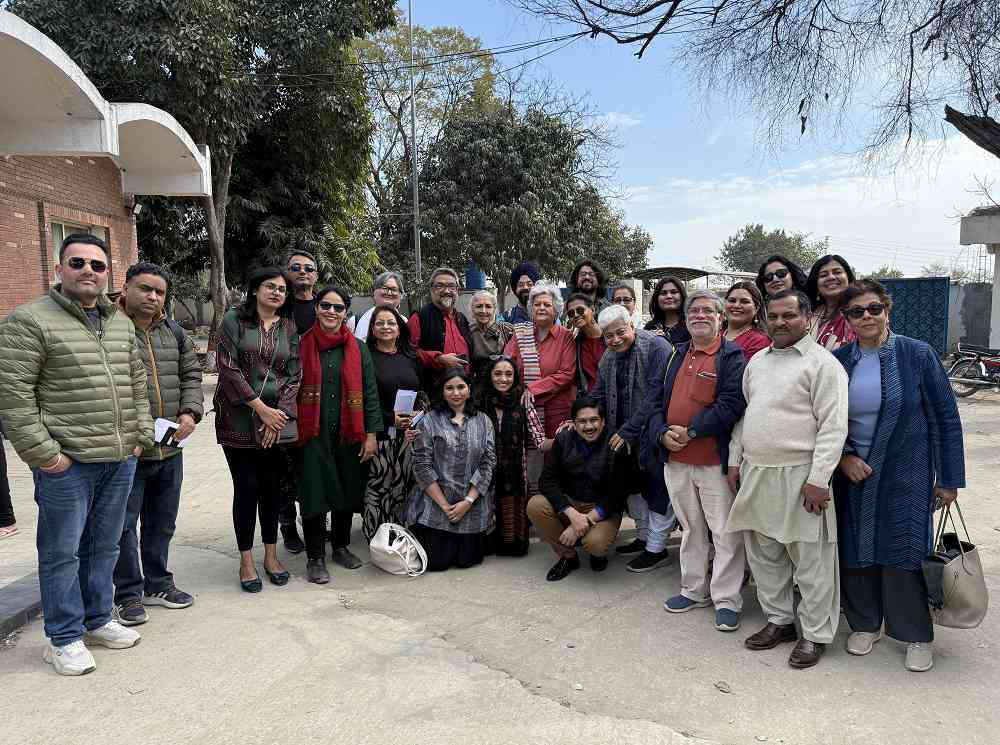‘If more and more people from India visited Pakistan, I’m sure that their perception of the country and Pakistanis will change for the better.’

In February, I had the good fortune to participate in the Faiz Festival in Lahore. I had heard a lot about the famed Pakistani mehmaan nawaazi (hospitality) from friends who had been there. This was what I experienced too. The faces of people on the streets lit up when they found out I was from India.
The Faiz Festival is held annually at the Alhamra Cultural Complex in Lahore. It celebrates the legacy of the great poet Faiz Ahmed Faiz through a mix of performances, book launches, exhibitions and thought-provoking discussions on art, culture, history, literature, gender and social inequality.
The main organiser of the festival is Moneeza Hashmi, who is Faiz’s younger daughter and a trustee of the Faiz Foundation Trust.
Moneeza Hashmi and her elder sister, Salima Hashmi, the chairwoman of the trust, along with the entire festival crew, were the perfect hosts, ensuring that all the Indian delegates were extremely well looked after.
The sisters hosted dinners for us that were full of love, warmth and, of course, wonderful food. Touchingly, Salima Hashmi had travelled to the Wagah border to personally welcome us to Pakistan.

As I crossed over into Pakistan, it was hard for me to control my emotions. My journey to Lahore was a homecoming of sorts. My family’s roots go back not just to Lahore but also to Sialkot, Rawalpindi, Dera Ismail Khan and Hoti Mardan in present-day Pakistan. In Lahore itself, there were plenty of connections.
On my mother’s side, my great-grandfather, Lala Gokal Chand Bhasin, and his brother, Shiv Ram Bhasin, graduated from Lahore’s famous Government College. My grandfather, Gurdial Mullick, studied at Government Law College, while my grandmother, Mohini Mullick, was from Hans Raj Mahila Maha Vidyalaya, which relocated to Jalandhar in India following Partition.
My paternal grandfather, JN Bali, ran a successful photo studio on Mall Road, Lahore. At a panel discussion that I was a part of, there was laughter across the jampacked auditorium when I mentioned family lore of how prized my grandfather’s portraits were for prospective brides and grooms. My relatives maintain that if my grandfather had clicked a snapshot of a man or a woman to be sent to a prospective spouse, the arrangement had a 75% chance of being sealed.

My paternal grandmother, Damayanti Bali, was a gynaecologist – a rarity in her time. She is reputed to have delivered many of the rich and famous born in and around Lahore in the 1930s and 1940s. She also wrote a book for children comprising four-line poems for each letter of the Hindi alphabet. Billo was first published in 1940 by Milaap Press in Lahore.
When I recited the most famous of my grandmother’s poems from the collection, Machhli Jal Ki Hai Rani, the fish is the queen of the water, I could hear murmurs of familiarity coursing through the crowd. Later, many people came up to me and told me the poem was quite popular in Pakistan too.
Reference Link:- https://scroll.in/article/1081001/in-lahore-a-back-to-roots-journey-and-a-taste-of-gracious-pakistani-hospitality

